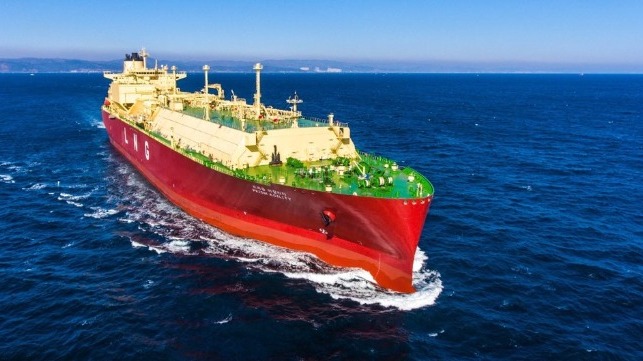
A consortium of South Korean companies is the latest to announce plans to develop a liquified CO2 carrier vessel that could play a critical role in the global carbon capture and storage process proposed as part of the efforts to achieve decarbonization. The project will be led by South Korean steel company POSCO working in conduction with Korea Shipbuilding & Offshore and the Hyundai Mipo shipyard owned by KSOE. Lloyd’s will act as the class society for the project.
The announcement of the South Korean project follows this week’s news that Japanese shipbuilder Mitsubishi was partnering with France’s TotalEnergies also to develop an LCO2 carrier. In the spring, Wartsila Gas Solutions announced it had received Approval in Principle from DNV for the designs of a cargo tank suitable for transporting liquid CO2. In addition, Danish companies Evergas and Ultragas are also working in partnership to develop tank designs.
In the new project announcement, POSCO said that it would focus on the development of steel that could be used to create the cargo tank to hold the liquified CO2. Korea Shipbuilding & Offshore Engineering and Hyundai Mipo Dockyard will be responsible to develop the welding technology needed in designing and building of the tanks and for the design of the vessel. Lloyd’s Register will handle certification of steel and technical review of storage tank’s design and manufacturing, while the flag state for the design will be handled by the Liberia International Ship & Corporate Registry.
The Korean project is targeting a design for a commercial vessel by 2025 capable of transporting 20,000 cubic meters of liquefied CO2.
Hyundai Mipo had launched another project to design an LCO2 carrier in the spring working with ABS and the Republic of the Marshall Islands Maritime Administrator. The shipyard looks to draw upon its experience in building gas carriers to develop a new class of ships that will support carbon capture and storage.
The Korean news outlet Yonhap is reported that POSCO is working to diversify its business and establish itself in the nascent carbon capture field. Separately, through its energy subsidiary, POSCO announced plans to develop a low carbon waste-to-energy technology. POSCO has also been exploring technologies to decarbonize its steel business.
SOURCE READ THE FULL ARTICLE
https://www.maritime-executive.com/article/ksoe-and-posco-enter-race-to-design-lco2-carrier